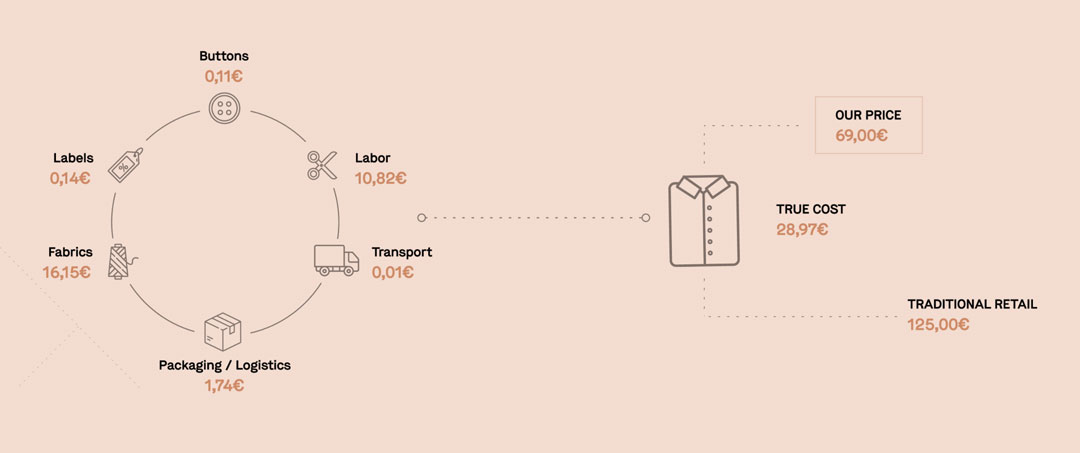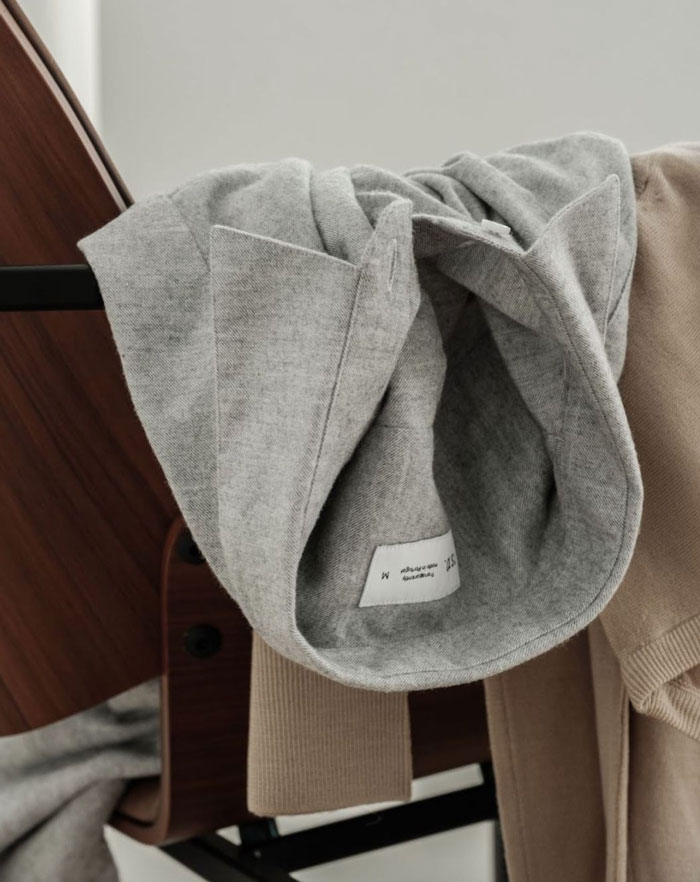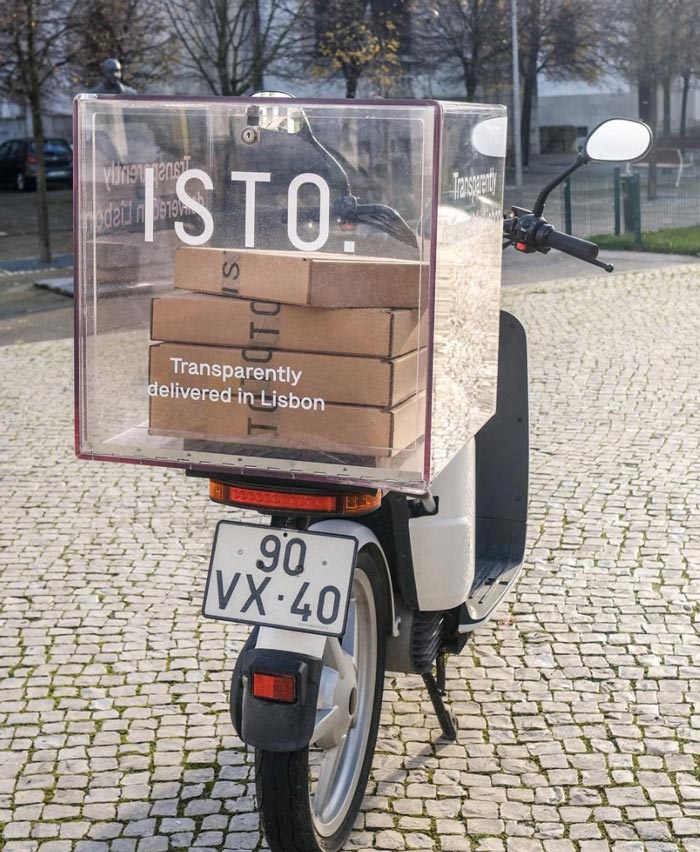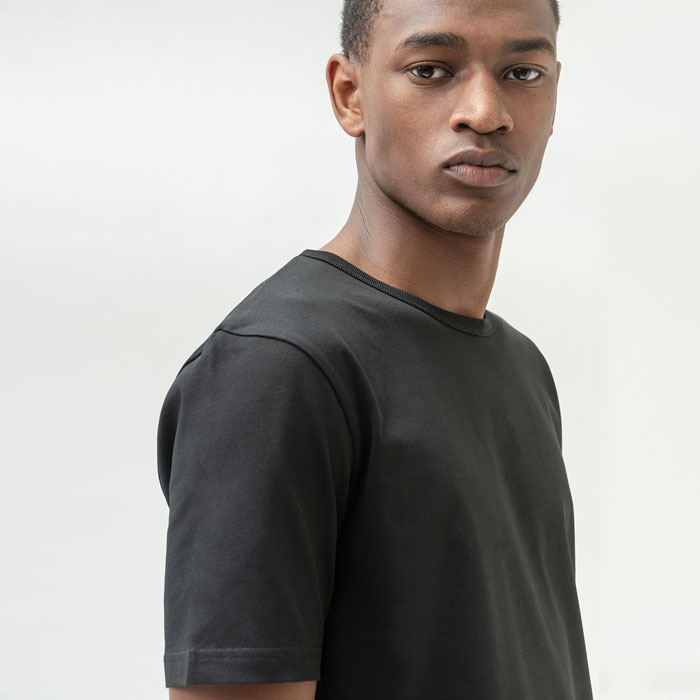Mariana exchanged questions and answers with Pedro Palha from ISTO. via email.
All photos kindly provided by ISTO.
A couple of years ago, a sudden curiosity inside me regarding the combination of circular systems, sustainability and fashion emerged. Somehow the need to become a more responsible consumer led me to find so many amazing creative businesses and projects out there that prioritized the attention and care for the people, planet and society. The brand ISTO. is one of these examples I had the pleasure to come across.
ISTO. (Portuguese word for “this”) is a premium fashion brand that you can actually afford… True! The idea was born and developed in Portugal and swears by four different core pillars: independent, superb, transparent and organic:
- A fashion brand that wants to live free from the industry constraints and frantic demands set by the high fashion agenda.
- Meanwhile, the focus is on creating classic items with the best materials for a relevant, stylish, desirable and unique fit.
- Yup… you guessed! Cotton clear transparency is what you will get as a result of working with factories held to the highest standards in social responsibility and work policies.
- And, for now, organic cotton is a no brainer for ISTO. but we might be seeing some future innovations in textile materials.
Pedro Palha, the Co-Founder at ISTO. kindly accepted my request for a short interview which intends to explore the journey of the brand, its imagery and how they have mastered the call for sustainability and transparency. I believe it is safe to say the brand ISTO. has mastered the art of rethinking a fashion industry in which everyone wins.
Mariana Costa
Pedro Palha
Throughout the last couple of years I’ve seen, from the outside, that ISTO. is growing and becoming a staple in the fashion industry in Portugal regarding sustainability and transparency. How did it start and how has the process been?
ISTO. started 3 years ago (July 2017) by three men that enjoyed dressing well but have grown weary of the fashion establishment. But, most of all, tired of how seasonality drives an irrational purchase behaviour and promotion cycles.
We also enjoyed pretty much everything that was produced with high quality, but we couldn’t afford to buy it. Since the start, through a full transparent supply chain, we have aimed for better products and have forged a different relationship with consumers.
Fortunately, it is being a super interesting journey, growing every day and making more and more happy clients. We want to drive awareness and become a viable alternative to fast fashion. We are surely here to stay!
We want to drive awareness and become a viable alternative to fast fashion.
What would you consider the biggest challenges faced so far in order to stay loyal and linear to the principles that guide ISTO.: independent, superb, transparent and organic?
I believe the most challenging issue we are facing is price point vs. quality and production costs in Portugal. We want to produce in Portugal, with the highest quality possible and with the best suppliers; this drives production costs to a level that most customers are not used to pay at fast fashion/lower quality and Asian manufacturing stores. We need to find a good balance between a fair price and one that can be financially sustainable. Sometimes people may not understand, but our markups are pretty low compared to the industry.

Transparency and Sustainability have become big words for the fashion industry. We see them being used increasingly in order to appeal to the eye of a “more conscious consumer”. How do you see the normalization of these “buzzwords” across the industry?
We all understand this kind of words sound good to the customer. At the same time, it’s good this kind of words are being used as I am sure they are driving awareness to pretty much everyone. What I would like to see is more brands sharing their production costs and facilities. Nevertheless, the future will be greener.
What I would like to see is more brands sharing their production costs and facilities. Nevertheless, the future will be greener.
For instance, how is ISTO. setting itself apart from it and showing its “Cotton Clear transparency” as a brand?
We try to improve our products everyday and pass all that accountability to the client. I believe our differentiation is still the highest quality, price transparency and honesty. The highest quality at the fairest price – not more than that.
The price breakdown scheme shown for each item is raising awareness around the idea of a transparent supply chain. This is something the consumer is not used to seeing fashion brands sharing much of, even from those with a sustainable mindset. Why do you think this makes a difference for the consumer and to how they perceive the brand?
Unfortunately it is not always good. Some people think we are making a lot of money each time we sell a product. That is not true. Think about salaries, rents (stores, warehouse, office), investment in new stock, marketing budget, expenses, taxes… Anyways, it is also on our side to try to inform clients as much as possible about these prices, but the feedback has been great overall.
Same-day delivery done in an ‘ISTO. manner’
Agency: Clube Recreativo / Directed by: Duarte C. Lemos / DOP: João Monge / DOP Assistant: Nuno Lobo / Post-Production: Vasco Gaspar / Music: Manuel Palha
We thought: “How should a transparent supply chain be? Well, clients should see everything about the process and should see their clothing arriving at their home.”
Recently, ISTO. shared the “Same-Day Delivery campaign: Transparent and easy on the planet”. Could you share with our readers how did this idea come up? And in case some of them want to get a package from ISTO. today, what should they do?
We thought: “How should a transparent supply chain be? Well, clients should see everything about the process and should see their clothing arriving at their home.” That was when we thought about a transparent box in an electric motorbike in Lisbon. And here we are, delivering our own goodies to all our clients in Lisbon (yep, unfortunately this service is only available in Lisbon).
The message in this campaign is simple and clear (literally!). Both transparency and sustainability were carried beautifully in one simple (in)existent object: an electric motorbike. How do you pretend to keep growing the message of the brand in the future in order to reach and influence more consumers towards ethical and fair fashion?
We truly believe it should be done with the same love for the brand, honesty and transparency with the client, while being obsessed with product quality and passing that to the client. We should also go deeper in pretty much everything we can do regarding our supply chain.
Two of ISTO. seasonless pieces: the work jacket and the T-shirt
It is notorious the consistency of the brand’s message across all content shared with your audience. I guess we can really say “what you see is exactly what you get”. If you had to say, in one sentence, why is it important to shop garments sustainably, transparently and with high regards to social responsibility, what would you say?
I truly believe buying clothes should follow my exact living goal: Buy just what you need, made with the highest possible quality, through the best craftsmen, and pay the fairest price to keep the economy growing, whilst being financially sustainable. Along with that, try to do good for yourself and the society.
Mariana Costa (@marianatgcosta) is a marketeer and sustainable fashion enthusiast based in Lisbon, Portugal. She is passionate about supporting the creation of sustainable and circular fashion systems and aspires to be an active voice regarding the misrepresentation of women in tech, social equality and labour rights. Read all of Mariana’s pieces here.









